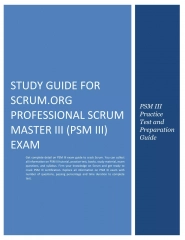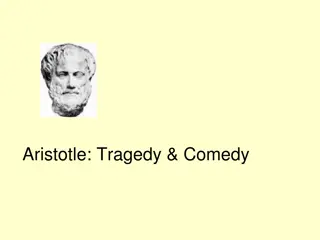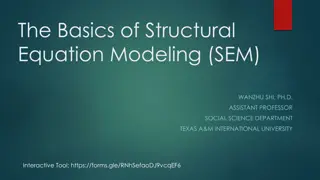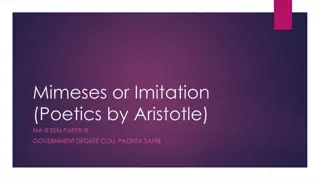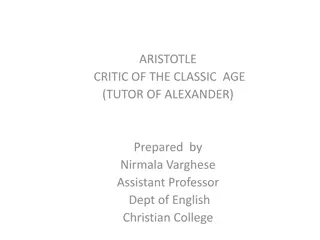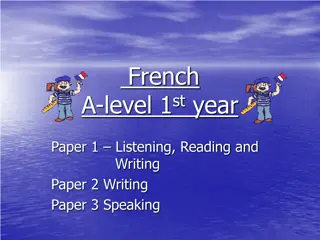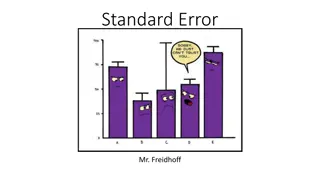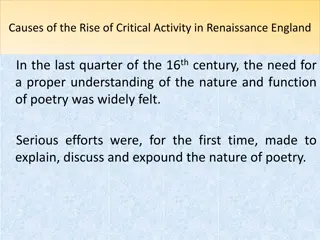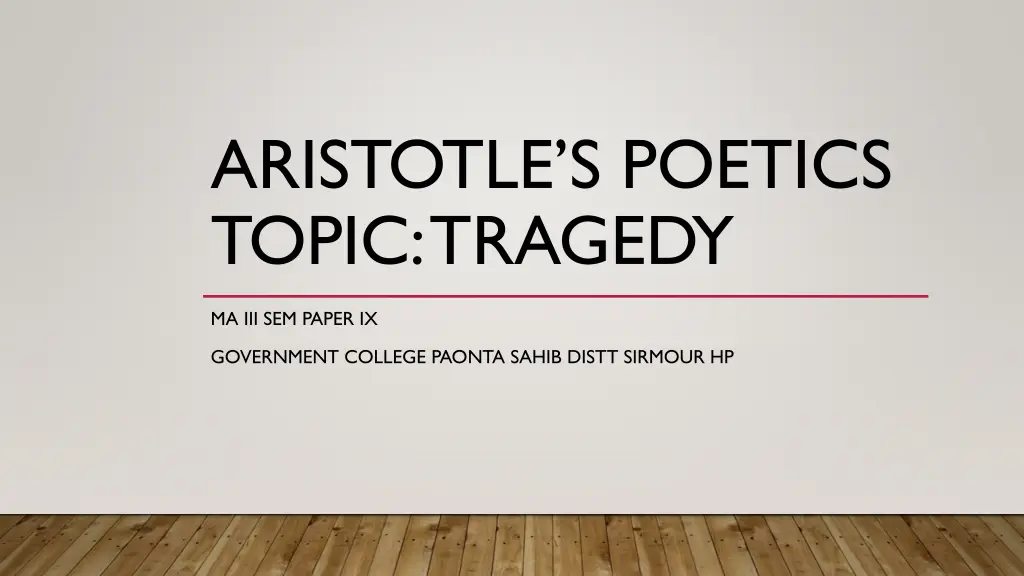
Aristotle's Insights on Tragedy and Catharsis
Explore Aristotle's famous work "Poetics," where he defines tragedy as an imitation of serious actions with key elements like complex plots, suffering, and catharsis. Discover how tragedy delves into profound human questions and tests characters through great suffering, leading to decisions of ultimate consequence.
Download Presentation

Please find below an Image/Link to download the presentation.
The content on the website is provided AS IS for your information and personal use only. It may not be sold, licensed, or shared on other websites without obtaining consent from the author. If you encounter any issues during the download, it is possible that the publisher has removed the file from their server.
You are allowed to download the files provided on this website for personal or commercial use, subject to the condition that they are used lawfully. All files are the property of their respective owners.
The content on the website is provided AS IS for your information and personal use only. It may not be sold, licensed, or shared on other websites without obtaining consent from the author.
E N D
Presentation Transcript
ARISTOTLES POETICS TOPIC: TRAGEDY MA III SEM PAPER IX GOVERNMENT COLLEGE PAONTA SAHIB DISTT SIRMOUR HP
Aristotles Definition of TragedyTragedy is an imitation of an action that is serious, complete, and of a certain magnitude in language embellished with each kind of artistic ornament, the several kinds being found in separate parts of the play in the form of action, not of narrative through pity and fear effecting the proper purgation of these emoti
Aristotles Poetics Basic ConceptsComplex plots are better than simple ones Suffering is to be included in a tragic plot which should end unhappily. The pity and fear from which the tragedy evokes, should come from the events, not from the mere sight of something on stage.
Tragedy came to signify a dramatic presentation of high seriousness and noble character which examines the major questions of human existence why are we here? how can we know the will of the gods? what meaning does life have in the face of death?
In tragedy people are tested by great suffering and must face decisions of ultimate consequence. Some meet the challenge with deeds of despicable cruelty, while others demonstrate their ability to confront and surpass adversity, winning our admiration and proving the greatness of human potential.
Aristotle five marks of tragedyImitates an action Arouses pity and fear Displays the human image as such Ends in wonder Is inherently beautiful
Tragic CatharsisCatharsis is not a technical reference to purgation or purification, but a beautiful metaphor for the peculiar tragic pleasure, the feeling of being washed or cleansed. I will show you fear in a handful of dust. T. S. Eliot Wasteland Alfred Hitchcock Horrible things and painful feelings
ReversalReversal is a change by which the action veers round its opposite, subject always to our rule of probability or necessity.
Recognition (anagnorisis)A change from ignorance to knowledge, producing love or hate between the persons destined by the poet for good or bad fortune.
Recognition (anagnorisis)A change from ignorance to knowledge, producing love or hate between the persons destined by the poet for good or bad fortune.
A Tragic HeroPity and fear/ pathos Noble (or aristocratic) Inevitability the ability to achieve greatness (but who through a weakness, or tragic flaw in his character, falls into the depths of misery and often to his death)
0 The Weakness of a Great Hero?Character is destiny. (Heraclitus) A hero is not a perfect person. Why can the audience be deeply moved by an imperfect hero?




